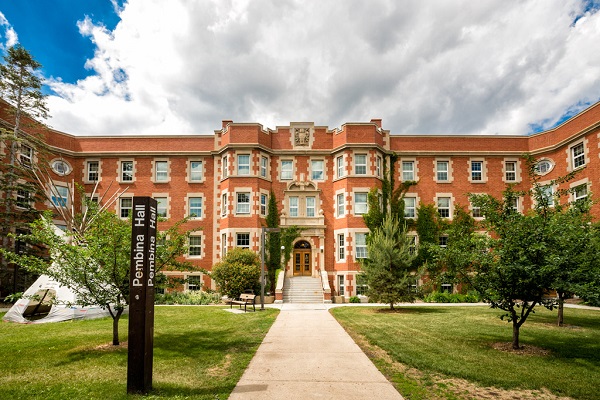University of Alberta gets $1.5 million funding from GSK
Biopharma company GSK is investing $1.5 million in University of Alberta’s Li Ka Shing Institute of Virology (LKSIoV), fueling its quest for breakthroughs in antivirals, vaccines and life-saving drugs.
The investment, directed toward the GSK Chair in Virology at the U of A, held by Dr. Lorne Tyrrell, brings the total value of the endowed chair to almost $6 million.
The endowment will ensure the recruitment of high-quality scientists to future leadership roles within the LKSIoV, whose membership includes some of Canada’s top virologists and immunologists who were at the forefront of the hunt for treatments and vaccines against COVID-19.
“GSK believes that it is in our collective best interest to ensure that centres and thought leaders are
supported — to maintain and drive excellence in research, to link innovation to the patient’s eventual access, and to attract and retain top talent,” says Marni Freeman, VP & Medical Director, GSK Canada. “With today’s announcement we are reaffirming our strong support for the University of Alberta, the Li Ka Shing Institute of Virology and Dr. Tyrrell as they take important steps to expand the GSK Chair in Virology propelling leading discoveries into life-changing solutions.”
“The Li Ka Shing Institute of Virology is an outstanding source of medical research and innovation right here in Alberta that earned Canada its second Nobel Prize in Medicine in just under 100 years,” adds the honourable Nate Glubish, Minister of Technology and Innovation, Government of Alberta. “This investment by GSK will supplement over $20 million in funding from Alberta Innovates to the Li Ka Shing Applied Virology Institute over four years to drive more research and innovation; strengthening our healthcare system and delivering better treatments for patients worldwide. Another example of Alberta’s success in building a reputation as a growing global tech hub.”
The funding is the latest milestone in a decades-long relationship between the U of A and GSK, helping position the university as a leader in virology and immunology research, both in Canada and globally.
“Long-term and beneficial relationships with industry partners such as GSK are critically important to building the infrastructure and the people that we need in an expanding biotech industry to create jobs and keep attracting top-notch people,” says Tyrrell, director of the LKSIoV.
The GSK Chair in Virology was established in 1996 with an initial investment of $1.75 million, coupled with a contribution of $1.25 million from the Government of Alberta. GSK committed a further $5 million in 2009 to purchase and maintain core laboratory facilities and equipment in the newly established Institute. These facilities to handle highly infectious pathogens proved to be invaluable to the U of A’s anti-COVID researchers as the pandemic struck.
The GSK investments were key to the 2010 establishment of the Li Ka Shing Institute of Virology and the recruitment of Dr. Michael Houghton as Canada Excellence Research Chair in Virology, according to Tyrrell, founding director of the Li Ka Shing Institute of Virology and holder of the GSK chair since its inception. Houghton was later awarded the 2020 Nobel Prize in Physiology or Medicine along with two other scientists for their discovery of the hepatitis C virus.
“Now COVID has changed the world,” says Tyrrell. “The fact that the university had recruited a number of very good scientists has made for a lot of strengths for the U of A.”
GSK was one of the first pharmaceutical companies to support university medical research in Canada when it backed Tyrrell and Morris Robins in 1987 to develop antivirals for hepatitis B, the most common liver disease in the world — work that eventually led to the licensing of the first oral antiviral drug to treat chronic hepatitis B infection, lamivudine, in 1998. At the time hepatitis B was the world’s ninth leading killer, with nearly a million deaths per year from liver cancer and cirrhosis.
“We could not have done that without the funding that came from GSK,” Tyrrell explains. “Industry funding allows us to take substances that are discovered at universities to a product that can be sold in a pharmacy for patients to access.”

